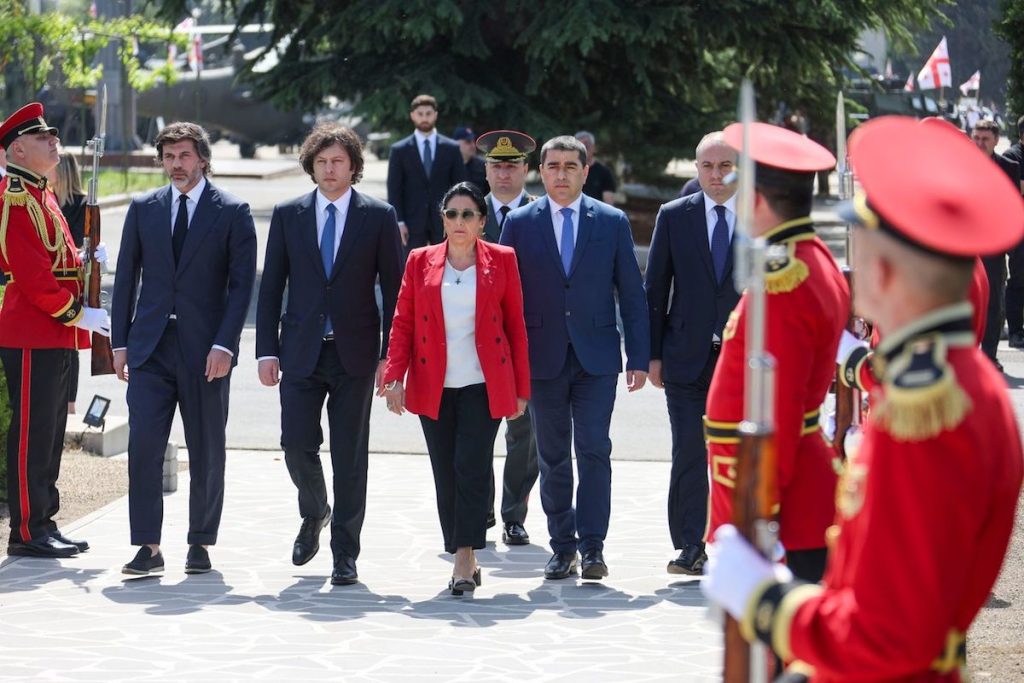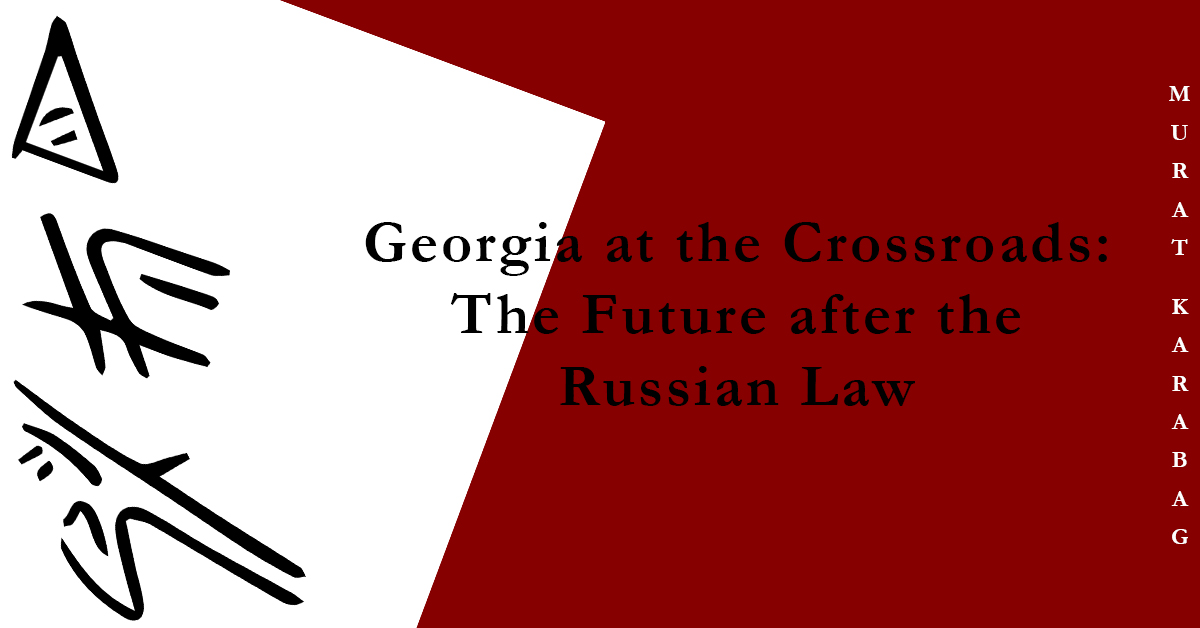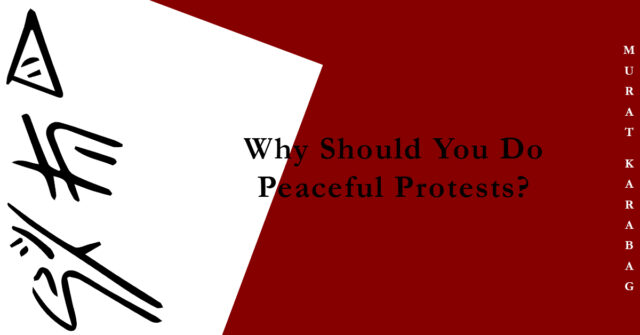On May 28 did Georgian parliament pass the infamous Foreign Agents Law for the second time after President Zourabichvili vetoed it few days before. The events before and during the readings, and after its passing, are not pleasant to say the least, and things are expected to get worse. But why did Georgia pass this law which, in practical terms, claims to the world that the country sides with and supports Russia while its land is de jure under Russian occupation? In this piece, I’ll try to summarize the situation which is lot more complex than what’s presented by the “experts” so far.
Some Historical Facts
Summarizing late-Soviet and early Republic Georgian history is impossible, because of which I’ll just jump to the conclusion: Today, roughly 20% of Georgia, the breakaway regions and self-claimed Republics of Abkhazia and South Ossetia, are under Russian occupation. They aren’t separate entities not because they lack international recognition but because it’s Georgian soldiers patrolling on one side of the border, and Russian ones on the other. Hence, after the annexation of Crimea, Russia was claimed to have 85 federal subjects, yet we can add (at least) two more to the list.
This, of course, wasn’t the first time that Georgia was invaded by Russians. Moreover, Georgia, the northernmost part of south of Caucasus Mountains, had been under Turkish and Persian rule previously, and Russians were the new and the last comers in early 19th century. For almost two centuries was Georgia under Russian rule, the way and the much that for Russia, Gruziya, Georgia in Russian, is but a part of the empire.
Georgia has trust issues with its neighbors, and rightly so. This long history of occupation left its mark in history books. Russia is couple of steps ahead of others, though, for it’s the minds along with history books that the memories remain. Past 40 years did Georgians find Russians fighting them and in the last one, 2008 Russo-Georgian War, Russian troops were about to enter Tbilisi, practically annihilating Georgia as a separate political entity.
At this point let’s turn our eyes towards west. Georgia joined Partnership for Peace in 1994, with the hope of becoming a NATO member eventually. In 2008, in January and before the war, Georgia held a referendum asking if the country should join NATO or not. 77% voted in favor. The only outcome of this was NATO designating Georgia as an aspirant country. Georgia is not in NATO, neither it seems like that the country ever will.
NATO isn’t the only international organization Georgia aspires to be a member of, EU is the other. The history is longer with the EU, yet a lot slower. Rather than 2024 as planned, in late 2022, two years in advance Georgia applied for membership to the Union, was granted candidate status which Turkey has been holding for a long while already, with no date in foreseeable future for the membership to be realized.
Now let’s move on to today, where things get even more complicated.
Some Contemporary Facts
Russian occupation of Ukraine resulted with flocks of Russians entering Georgia. Today, on the streets of Tbilisi, you’ll hear Russian equally much if not more than Georgian. This caused many, many problems both for the state and the people, three of which are of more importance than the others – for they’ll have long-term effects:
- “Russia is where Russians live” has been the imperial policy of Russians – and let’s be honest for a second: For Putin, he is not the head of Russian Federation but is the Tsar of Russian Empire. Georgia, now hosting hundreds of thousands of Russians, is Russia – if wasn’t already as a result of two centuries of occupation. What’s strange is that part of the newcomers threaten Georgians with Putin, from whom they fled.
- Russians in Georgia not learning Georgian is one thing, which is understandable in a way, but Russians expecting everyone to speak Russian, and insulting them for not doing so is another. Most of the Russians that moved to Georgia don’t blend in the society, neither show and desire to do so.
- The sudden flock of Russians means increased demand, yet there’s no equal increase in supply. Already hurt with the economic results of Covid-19, average Georgians suffer from the side-effects of this demographic invasion. Add to this the fact that Russians that moved to Georgia are times richer than an average Georgian, commodity prices doubled in such short notice, not only because of lack of enough supply but also because there’s more profit to make, and poverty got deeper. Ordinary Russian is more or less equal to Georgian elite, which might help your imagination.
These are but one side of the problem which aren’t vocalized by many, including Georgian rapporteurs. What’s done, suggested, or turned a blind face by the government are not just written but shown visually numerous times, and I won’t go through them again. One, though, has to be mentioned: President Salome Zourabichvili, according to the Prime Minister Irakli Kobakhidze, is “simply a traitor to this country in the truest sense of the word”. I know this language from my own country, Turkey, and I know whence it comes and where it goes. The funny part, though, is seen in the photo:

On a national day, it’s only the soldiers and the President that’s wearing the colors of the nation, red and white. On the far left side is the Mayor of Tbilisi Kaladze, a generation’s football idol, and to his right is the PM Kobakhidze. I, sadly, don’t recognize the other two men, neither it matters. What matters is that every man, every single man that I met has a red tie in their wardrobe, yet on this very special day none of these people decided to wear one. What did they wear? Blue of their party – and blue of Russia. Sadly, unlike Putin, they can’t wear a red tie over a blue shirt and blue suit. That would be just so much for the time being, wouldn’t it?
Excursus: A Bit of Turkey
In 2007, Turkey elected its “first Muslim president”. I was studying at METU back then and we had a “red kiosk” where the dormitories were located. That was its name: Red kiosk. We were meeting in front of it, we were going there to get newspapers or cigarettes, we were explaining routes via it. In 2007, that very summer its color changed to green and it still is called the green kiosk.
Something important? Absolutely not. But changes start somewhere, generally small. Then they collect and the change is visible. When the change is visible, more is already about to come. It was the same year, again, when people choosing Coca Cola over Cola Turka, a simple soft drink were being labelled non-Muslims and enemies of the people. You know where this small change would lead to: Being called traitors.
Indeed, they then were called traitors. Can you imagine being a traitor, just because you don’t drink their brand of coke? But again, when such thing is visible, more is about to come. Indeed, more did come. Young people got beaten, injured, even got killed during Gezi Park protests. Why? Because the next step already was taken: From traitor to terrorist they had risen.
When a government turns its back to some of its citizens, peace is never possible. Not only Turkish economy continuously shrank every single year ever since but also the society has been living in continuous state of emergency, which brings us back to Georgia.
Georgian Dream
Przeworski wrote that elections actually don’t matter that much: In democracies, ~80% of the time the ruling parties remained at the office. The only upside of democracy might be the bloodless transition from one government to another, which isn’t always the case either. This isn’t to defame democracy, I studied extensively on it for almost two decades, but some things need be said.
Another interesting point is that excluding few exemptions, like Jiyū Minshutō (Liberal Democratic Party of Japan), two terms or roughly eight years is when a single party (i.e. non-coalition) government starts becoming the state and with the third, after around a decade, the party is the state. I don’t know if they had any idea but the founding fathers of the US did a perfect job of limiting presidency to two terms.
Georgian Dream has been in power since 2012, leading a coalition government, and has held power single-handedly since 2016. The eight year limit is reached and things already look nasty. Not witnessing myself, I can’t say much about what’s going on behind the walls but already people are getting beaten and properties are vandalized. Another term and Georgia, like Turkey, will be a lost cause.
But, will the party manage to succeed in October 2024 elections?
They shouldn’t, if you listen to those that present their hopes as facts, like this one: Decreasing support is from ~50% to ~40%, which is enough in almost all scenarios to form a single party government. Add to that the fact that the opposition still is fragmented, and the problem grows. No, the party isn’t weak yet. But something might come to be a problem:
In 2023, Erdoğan was reelected as president while constitutionally he wasn’t allowed to. His election policy was somehow similar to that of Charles Taylor’s famous you killed my ma, you killed my pa, I’ll vote for you. “I ruined everything, you can’t even feed your children, but I won’t let gays get married” was the heart of his campaign – and it worked. Then, a year later in local elections, Erdoğan’s party came second for the first time since its founding, as it’s not poverty but literally hunger that an average Turkish citizen is fighting now. GD’s campaign is similar, at the heart is “we don’t let gays get married”. Will it work?
Am not sure, but my reasons lie elsewhere. GD had been pro-EU and pro-NATO since its establishment in 2012. Now, they are not against either of these, yet are highly critical and defaming. What the result of this change will be? Georgians want NATO for protection from Russia and EU for better life prospects. Georgian Lari has been losing value since May 2024, when talks got serious, and it doesn’t seem likely that it will stop.
But, why did they do so – betraying their past, as well as causing economy to carry yet another burden?
What Might Have Happened?
Trying to explain lengthily makes the issue harder to understand, hence I’ll be brief: Russian invasion of Ukraine once more showed that Russia does not respect its borders with its former colonies. It’s Russian troops in Kazakhstan, in Armenia, in Belarus…
In Georgia.
Georgia is chosen to be the spearhead of the western powers in the Caucasus while being provided nothing. Sweden and Finland are admitted into NATO in 2023 and 2024, practically right after they applied. All Baltic countries have been members since 2004, when they also joined the EU. Georgia? It can wait. They better be a NATO ally but not a member. We know, though, that alliance doesn’t do anything. We’re yet to see if membership means anything but that’s another story.
The same goes with the EU. 2004 enlargement, Romania and Bulgaria’s memberships in 2007, then Croatia in 2013… Will Georgia ever make it? I doubt so.
It can be said that NATO cannot let Georgia in now for its land is under occupation. It also can be said that Georgia has the huge Black Sea and Turkey between itself and the contiguous EU. But if we say these, we should admit that both organizations only want Georgia to do what they want, again, receiving nothing in return. This is what GD says. “Are you honest? Then take us in” they say.
What might Russia offer, then? I guess not finishing what they started in 2008 – and maybe more. After losing Armenia with the Second Nagorno-Karabakh War, they need a replacement in the Caucasus. Azerbaijan surely is not an option. Aliyev dynasty managed to keep balance between the two and stay out of the sight of both. Georgia anyway is an easier option also with the close ties of the current government to Russia. Why opt for the harder and more expensive one when there’s the easier?
And What to Expect?
No one is stupid. Sartre wrote perfectly in Fanon’s Les Damnés de la Terre: Do not trust them “white man”. I learned it the hard way, many of us “realists” did. See this, for example. A legal document that says Europe chose Turkey as its trash bin and Turkish government duly accepted. Selling the world the Kantian ethics, I wonder based on what other than the cold truth can such agreement be justified? But it is there. Signed by the “leaders of the free world”. In the backlash against democracy, Europe has its fair share – and again, that’s for another post.
With GD in power, this policy cannot change. That’s more or less given – and they, in my humble opinion, don’t seem to be overthrowable yet. Weaker they will be, but not replaced. In a way I kind of understand even if not agree with them. Had they not chosen to become the puppets of Russia, what they threaten the people with, invasion surely would be a matter of time. A Turk that almost worships Atatürk, I’d rather die on my feet than live on my knees. Georgia seems to have chosen the latter, which is again justifiable:
What would happen had Russia severed ties again, and started an invasion? Georgian youth would leave the country for Europe, many would get wounded and die, and in the end the government would be replaced with a Russian puppet. People don’t die this way, that’s a lot of a thing. Revolution needs living people, they say. Death for the cause should be the last option, not the aim. This way maybe Georgia will find a way to be rid of them superpowers. Who knows, maybe Putin will have a heart attack tomorrow morning?
When no one is right, everyone is. And in Georgia, everyone is right.


